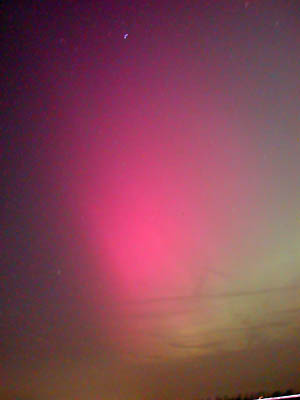Tell me what you eat and I will tell you what you are
New York Times Saturday Profile: Taking the Oxymoron out of ‘German Cuisine’ (free registration required). Wolfram Siebeck is a German cook and restaurant and food critic who says: “Mildness in food – it’s a castration.” (I think that André would agree.  )
)
I often read Siebeck’s food columns in Die Zeit, but I had no idea how big his influence on German cuisine was. The NYTimes gets only one thing wrong: Wolfram Siebeck is not the German equivalent of Martha Stewart.

Diese Woche in der Zeit
Flüchtlinge: Odyssee ins Paradies. “Afrikaner fliehen nach Europa: Eine junge Frau verlässt Nigeria, wandert wochenlang durch die Sahara, steigt in das Schlauchboot eines Schleusers und setzt nach Spanien über. Die Geschichte einer qualvollen Reise.” Von Ariel Hauptmeier.
New Economy: Das Monster. “Die virtuelle Großmacht Google bearbeitet drei Viertel aller Suchanfragen im Internet. Nun planen die Manager einen ungewöhnlichen Börsengang.” Von Ludwig Siegele.
Wirtschaft: Ein Chinese greift an. “Mit Waschmaschinen und Kühlschränken schuf der Arbeitersohn Zhang Ruimin den ersten Multi der Volksrepublik, den Haier- Konzern. Er hat den Ehrgeiz, Siemens zu schlagen.” Von Georg Blume.
Auxologie: Größe zählt. “Ostdeutsche wachsen, Amerikaner schrumpfen. Die Körperlänge verrät viel über den Zustand einer Gesellschaft.” Von Christoph Drösser.
Wissen: Die Einsilbigkeit der Erinnerung. “Chinesen können sich vieles besser merken als Deutsche.” Oder doch nicht?
Leben in Deutschland (5): Wie man sich in Deutschland informiert. “Wir sehen immer mehr fern und lesen immer weniger Zeitung, die Buchlektüre stagniert auf niedrigem Niveau, das Internet holt auf. Und wer etwas auf sich hält, nutzt mehrere Medien – am liebsten gleichzeitig. Eine Programmübersicht.” Von Susanne Gaschke.
Der Artikel behauptet: “Jeder Haushalt besitzt – mindestens – ein Fernsehgerät.” Da muss ich aber widersprechen: Wir sind ein Haushalt, und wir besitzen kein Fernsehgerät.
Leben: Bittere Schokolade. “Wolfram Siebeck ärgert sich über die Bürokraten in der Europäischen Union, die uns mit ihrer Gleichmacherei nicht nur den Genuss verderben: Zusätze in Lebensmitteln können angeblich sogar dumm machen.”
Norwegen: Gut gezielt, Schütze! “Im Süden Norwegens hat Anfang Oktober die Jagdsaison begonnen. Acht Männer und ein Hund sind in Elverum auf der Jagd nach dem Elch der Elche.” Von Claus-Peter Lieckfeld.
Flughafendrehkreuz: Das Wunder von Wahn. “Seit einem Jahr ist der Flughafen Köln/Bonn Drehkreuz für die Billigflieger. Sein Erfolg setzt die Geschäftsführer anderer Flughäfen unter Druck.” Von Andreas Spaeth.
Privathochschule: Good Morning, Bremen! “Spitzenforschung, Studenten aus aller Welt – die private International University brummt. Doch zum Wachsen fehlt das Geld.” Von Michael Schwelien.











